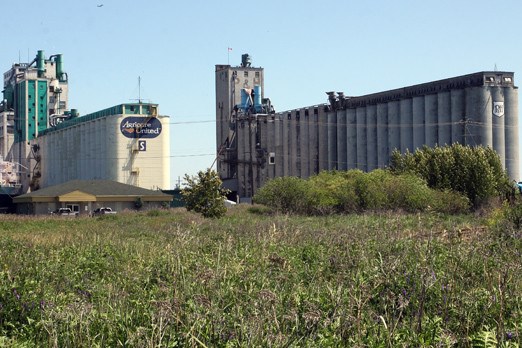Changes to the Canadian Wheat Board could mean more grain traffic for Thunder Bay, says the head of the local port authority.
The federal government is planning to send wheat and barley to the open market, which has been monopolized be the wheat board since 1935, by 2012. Currently 60 per cent of all goods shipped through Thunder Bay are from the wheat board.
Thunder Bay Port Authority CEO Tim Heney said while it’s too early to tell what the changes will mean for the local port, he’s confident grain will continue to ship through this area.
Currently the wheat board controls sales of Canadian wheat and barley and dictates transportation routes. If its monopoly ends, Heney said there is a threat that grain could be shipped south directly from the Prairie Provinces.
But the seaway is a competitive shipping route for places like Europe and Latin America.
"We’re kind of optimistic actually that those companies will see opportunities in the seaway so there is some potential that we could actually see an increase in shipments.”
And demand for grain in North Africa and the Middle East, both served by Thunder Bay, are on the rise, which means more grain will need to pass through Thunder Bay to get there.
"So with that growth and consumption this is a natural route to get to those markets," he said. "So in a global sense we certainly see room for optimism."
It will eventually be up to the private grain companies how Canadian grain will move around the world once it’s opened to the market though.
"Of course nobody really knows what’s going to happen because this situation has never rally presented itself before," he said. "We really haven’t seen any independent comment from any of those companies at this point."
While the port doesn’t have much influence on the companies, Heney said they have been trying to attract ocean ships carrying special cargo, like wind turbines, that will load grain on the way back to European markets.
It also tries to keep costs down. The port hasn’t increased harbour dues since 1989.
"If there is a change there’s really not much we can do. Just keep the word out there about the supply chain that we do have."
Thunder Bay has a 1.2 million tonne storage capacity for grain, making it the largest single market storage site in North America.
Sign in or register
- Messages
- Post a Listing
- Your Listings
- Your Profile
- Your Subscriptions
- Your Likes
- Your Business
- Support Local News
- Payment History
Registered Users
Already have an account?
New Users
Create a free account.
